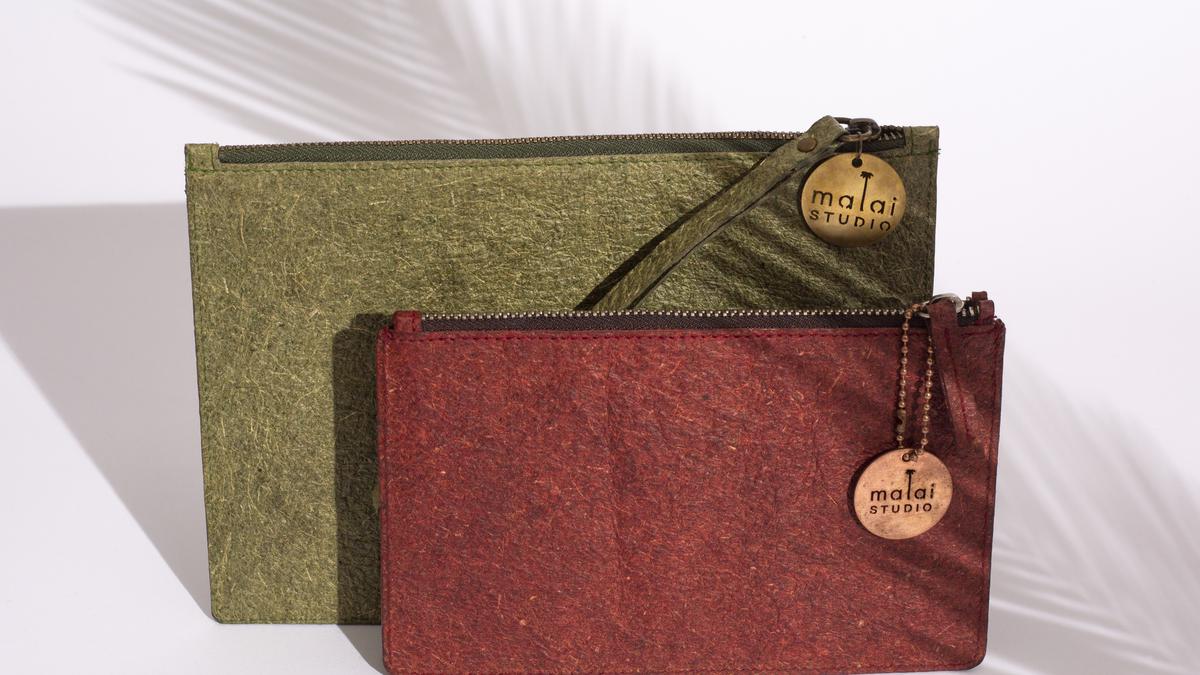
A Slovak woman forms a start-up exploring business potential of ubiquitous coconut water in Kerala
The Hindu
From producing coconut leather sheets and distributing it to clients, including in Europe, the start-up has now turned to manufacturing products
As ironic as it may sound, it needed Zuzana Gombosova, a woman from Slovakia, to explore the business potential of coconut water in a State that derives its name from the coconut tree.
Four years ago, Ms. Gombosova launched the start-up, Malai Bio Materials Design Private Limited, based at Panavally in Alappuzha district that deals in coconut leather, which is touted as an alternative to conventional leather. It is now registered with the Kerala Startup Mission (KSUM) and has received some funding.
Ms. Gombosova had come to Kerala as a material researcher and started exploring the potential of the ubiquitous coconut water, which forms the primary raw material for the coconut leather.
“Coconut water is fermented, and the evolving translucent bacterial foam, called nata-de-coco, forms about 70% of the raw material with the rest made of various fibres in the production of coconut leather sheets. Coconut leather can be used for making almost all leather products except textiles since it is not water-proof,” said Veronica Sheryl, a senior consultant with the start-up, at a counter set up as part of the ongoing Kochi Design Week at Bolgatty.
Till this year, they restricted themselves to the production of coconut leather sheets, which they distributed to their clients, including in Europe. They have a production unit at Panavally, while the primary raw material of nata-de-coco is being mainly supplied from north India. Now, the start-up has turned to production of various leather products and has tied up with a manufacturing unit in Chennai.
“We have clients from across the country and Europe and need up to 120 kg of nata-de-coco a week. We mainly associate with small designers. Our aim is to promote the use of coconut leather, which is fully natural and poses no danger to the ecosystem,” said Ms. Sheryl.
Though the pandemic has taken its toll, the start-up has now found its feet again.













